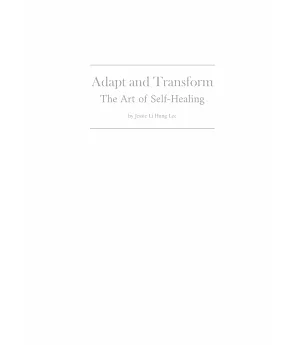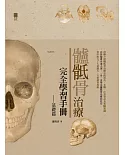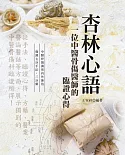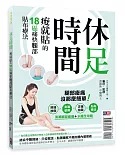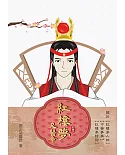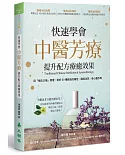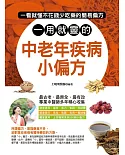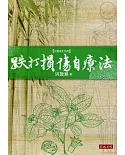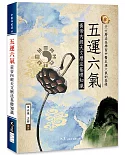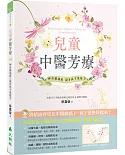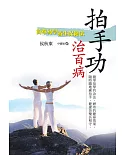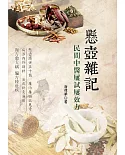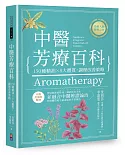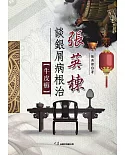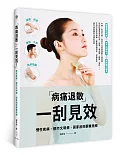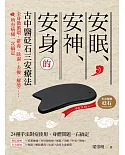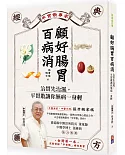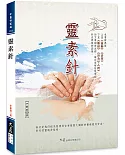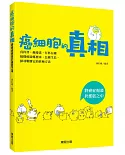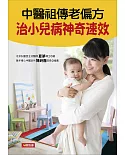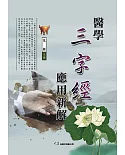推薦序
PREFACE
ADAPT AND TRANSFORM BY DR. JESSIE LEE
For me, acupuncture began as an act of desperation. I was in pain from spinal stenosis, a displaced vertebra and an arthritic back. This condition had progressed to the point
where the steroid shots I had been taking were no longer effective.
This is where Dr. Jessie Lee entered my life. My medical doctor pain specialist recommended acupuncture and Dr. Lee’s treatment, through holistic therapeutic acupuncture technique, was
not only helpful, but the acupuncture experience itself was educational as well. Dr. Lee is an excellent teacher. She carefully explained how acupuncture treats the person rather
than the disease. The focus of acupuncture is the energy flow in the body. When people experience pain, whether acute or chronic, there is a blockage in a pathway of the body which
affects the energy flow to the site of the pain. In the same way, acupuncture serves to redirect energy to a diseased area of the body and relieve the effects of a physical reaction in
the body such as a stroke or heart attack.
Adapt and Transform is a fascinating book. It is filled with informative illustrations of acupressure techniques, acupuncture site locations and descriptive Traditional Chinese Medicine
theories and therapies. While the focus is on acupuncture and Traditional Chinese Medicine, the book does not discount Western medicine as Dr. Lee herself mentions her regular exams by
Western medicine practitioners.
A most delightful aspect of Adapt and Transform is the biographical portrayal of Dr. Lee’s journey and personal transformation while adapting to life across three continents and five
countries in Asia (Taiwan), South America (Bolivia) and North America (Guatemala, Mexico, USA). As we share this journey, we witness Dr. Lee’s evolution as a healer. She takes us
back to her childhood where she cured a newborn ailing puppy by channeling and resonating energy and carries us to her current practice where she combines acupuncture, hypnosis and psychology
in a holistic approach to the treatment of disease and physical ailments.
Dr. Lee’s life journey, as told through vignettes of her personal experiences, paints a broader picture on holistic therapeutic techniques. How she decided to combine various
methodologies in her practice can be the subject of another book in and of itself. This determination was formed, in part, by her extrasensory perception attributes.
In the chapter titled “Walking Lightbulb,” Dr. Lee describes how at age 5, she witnessed varying hues of light auras emanating from people. Growing up in rural Taiwan, where her father
was a Christian church pastor with acupuncture skills, Dr. Lee was accustomed to seeing sick people visit her father for help. As the thesis research topic for her doctorate in
Traditional Chinese Medicine, Dr. Lee chose “light acupuncture modality.” Applying this modality in her practice, Dr. Lee occasionally experienced “inadvertent flashes” of the “walking
lightbulbs” and sick people emitting a “faint gray light” instead of the eye-catching “light yellow glow.”
The book is sprinkled with principles of Traditional Chinese Medicine. In several of her biographical sketches, we witness how Dr. Lee’s 15-year struggle with the depression guided her
transition from reliance on Western medicine antidepressants to Chinese herbal medicine. From the perspective of Traditional Chinese Medicine, Dr. Lee was able to conclude that “ an
unbalanced Heart meridian and organ are the main reasons that caused depression and other mental disorders. (Because the heart controls our mind and spirit, and mainly the emotion of joy)
And then, combined secondary meridians and organs unbalanced, such as the Spleen/ Stomach system.” Integral to many treatments in Traditional Chinese Medicine is an overarching spiritual
component. This is a component fully embraced by Dr. Lee and her spirituality is reflected throughout the book.
Some concepts of Traditional Chinese Medicine will leave the reader questioning the basic assumptions of Western medicine. Dr. Lee provides an example of a patient, a retired nurse, who
was receiving acupuncture for swelling in her ankles related to a past automobile accident. The patient initially balked when Dr. Lee recommended a daily 20-minute soaking of her feet in
warm water in addition to the acupuncture treatments. “But why? We only use ice,” was the response of the patient. Dr. Lee noted that if ice had worked in the long-term for
the patient before, she would not be undergoing acupuncture treatments now. Because it restricts blood flow, ice temporarily reduces swelling and numbs pain. Noting the teachings of
Chinese medicine, Dr. Lee patiently explained that the body naturally maintains a warm temperature range and “warm water keeps our metabolism, digestion all of our circulatory systems
functioning.”
For the Westerner, this is a book that opens an easy bridge to acupuncture and other concepts of Traditional Chinese Medicine. Dr. Lee provides an example where she used auricular
treatment, the placement of seeds, such as vegetable seeds, in the ear to successfully help a patient manage her pain and quit smoking. By her own example, Dr. Lee demonstrated another
dimension of Traditional Chinese Medicine. When she was in her mid-twenties, Dr. Lee became a vegetarian in response to allergies she experienced after eating seafood, meat or
chicken. A little over twenty years later, she learned from further allergic reactions to her vegetarian diet, and lessons from her Traditional Chinese Medicine instructors, that she had
to balance her nutrition by adding very small amounts of meat and seafood to her diet.
Balance, the Yin and Yang, and introspection, seeking the Divine, are the hallmarks of Dr. Lee’s journey. The goal is to achieve “unity of man and the universe.” Adapt and
Transform tells the story of Dr. Lee’s evolution to the person she is today. This book is a treasure for those seeking an easy introduction to acupuncture and Traditional Chinese
Medicine. Readers will also receive a bonus as they share Dr. Lee’s life story and her continuing efforts to bring healing, peace and calm to a patient population ailing from a life of
imbalance. Thank you Dr. Lee for sharing your knowledge and your empowering life story.
Adrian K. Panton, Attorney
Oct.25.2020 In California
作者序
Birth, Fading, Sickness, Death & Revival
A little girl asked her master,
“I have a doggy, and this doggy died, so I don’t know how not to be sad?”
Master replied, “You look into the sky, and you see a beautiful cloud, the cloud has become the rain, and when you drink your tea, you can see your cloud in your tea.”
“Walk With Me” by Thich Nhat Hanh
When I looked at a cup of tea, I said, “Hi cloud!”
Now when I hold onto acupuncture needles, I say, “Hi, Dad!”
- Dr. Jessie Lee

